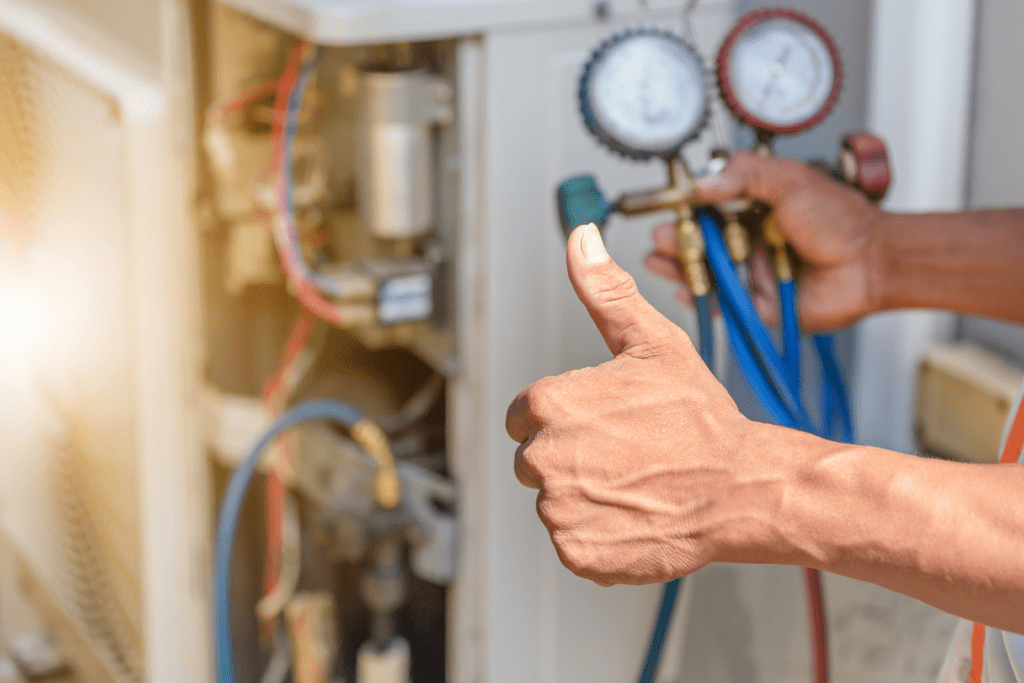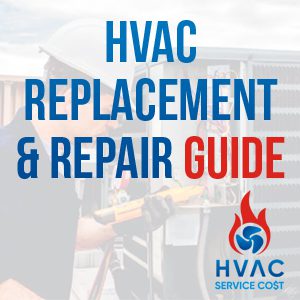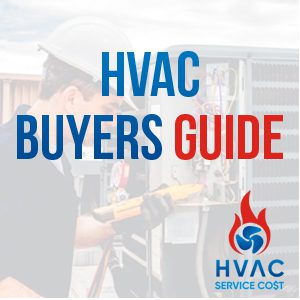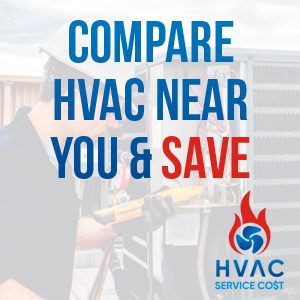
Common HVAC Repair Estimates in 2024
HVAC systems stand at the heart of modern homes, crucial for ensuring comfort through the seasons while maintaining energy efficiency. As we move into 2024, staying informed about common HVAC repairs and their costs becomes essential for homeowners looking to manage their household budgets effectively. Equally important is recognizing the value of professional HVAC services in addressing these issues promptly and proficiently. This guide delves into typical HVAC problems, estimated repair costs for the coming year, and why professional intervention is not just a choice but a necessity for system longevity and home comfort.
Understanding HVAC Systems
An HVAC system, encompassing heating, ventilation, and air conditioning components, plays a pivotal role in maintaining indoor air quality and thermal comfort. Key components include the furnace, air conditioner, ductwork, thermostat, and various controls and switches. Regular maintenance is the cornerstone of HVAC care, helping prevent the most common issues that can lead to expensive repairs, ensuring the system runs efficiently, and prolonging its service life.
Common HVAC Repairs and Estimates for 2024
- AC Refrigerant Leak Repair: Refrigerant leaks not only reduce efficiency but can also cause environmental harm. Repairs might involve detecting leaks, sealing them, and replenishing the refrigerant. Costs can range from $200 to $1,500, influenced by leak severity and refrigerant prices.
- Furnace Ignition or Pilot Control Problems: Failures in ignition systems can leave you cold. Repairing or replacing faulty ignition components can cost between $150 and $400, ensuring reliable furnace operation.
- Thermostat Malfunctions: A faulty thermostat affects HVAC performance. Replacement costs, especially for smart thermostats, can vary from $50 to $500, depending on the model and features.
- Clogged or Dirty Filters: Regularly changing filters is a simple yet crucial maintenance task. While homeowners can replace filters for as little as $10 to $50, professional service ensures optimal selection and fit.
- Condenser or Evaporator Coil Cleaning/Repair: Dirty or damaged coils impair system efficiency. Cleaning costs around $100 to $400, while repairs or replacements can escalate to $600 to $2,000.
- Blower Motor and Belt Replacement: These components are vital for air circulation. Replacements typically cost between $150 and $750, depending on the motor type and system design.

Emerging HVAC Issues and Technological Impacts
As HVAC systems evolve, incorporating more sophisticated technology to improve efficiency and user control, new types of repair needs are emerging. Smart HVAC systems, for instance, which can be controlled via smartphone apps and feature advanced diagnostics, may require specialized knowledge to troubleshoot and repair.
- Smart HVAC Repairs: Issues with connectivity, software updates, or sensor calibration in smart HVAC systems can impact performance. While these systems offer enhanced diagnostics, repairs may involve more than mechanical expertise, extending into software troubleshooting. The average cost for such repairs could range from $100 to $600, reflecting the added complexity.
- Environmentally Friendly Systems: Eco-friendly HVAC systems, such as geothermal heat pumps or those using non-traditional refrigerants, are becoming more popular. Repairing these systems might require technicians with specialized training in green technology, potentially affecting repair costs due to the specialized nature of the service.
The Importance of Sustainability in HVAC Choices
Sustainability is increasingly influencing homeowner decisions around HVAC systems, impacting not only the types of systems being installed but also how they are maintained and repaired. Choosing environmentally friendly systems and ensuring they are kept in optimal condition can significantly reduce a home’s carbon footprint and energy consumption.
- Choosing Sustainable Systems: Opting for HVAC systems that use less energy or renewable energy sources can lead to higher upfront costs but result in long-term savings and environmental benefits. Repairs and maintenance for these systems should prioritize preserving their efficiency and sustainability features.
- Maintenance for Efficiency: Regular, professional maintenance plays a crucial role in keeping any HVAC system running efficiently. For sustainable systems, this may involve cleaning and checking components more frequently to ensure they operate at peak efficiency, ultimately contributing to the system’s longevity and reducing the need for repairs.

Long-term Savings and Preventive Measures for HVAC Systems
Investing in preventive maintenance and timely repairs can yield significant long-term savings for homeowners. A well-maintained HVAC system operates more efficiently, uses less energy, and is less likely to suffer from major breakdowns that can result in expensive repairs or replacements.
- Preventive Maintenance Programs: Many HVAC service providers offer maintenance agreements or programs that include regular inspections, cleaning, and minor repairs. These programs can help catch issues early, before they escalate into more significant problems, with costs for these programs varying but often proving economical in the long run compared to the costs of major repairs or system replacement.
- Energy Savings: An efficiently running HVAC system can significantly reduce home energy bills. Regular maintenance ensures that systems are not working harder than necessary, which not only saves money but also extends the life of the system.
As we look towards 2024, the landscape of HVAC repair and maintenance is evolving, with technological advancements and a growing emphasis on sustainability shaping homeowner choices. Understanding the common repairs most homeowners face, alongside emerging issues and the impact of technology, equips homeowners with the knowledge to make informed decisions about their HVAC systems. The importance of choosing professional HVAC services cannot be overstated, offering expertise, efficiency, and peace of mind.
Homeowners are encouraged to consider the long-term benefits of investing in maintenance and opting for sustainable, energy-efficient systems. By prioritizing preventive measures and partnering with reputable professionals, the costs associated with HVAC repairs can be effectively managed, ensuring systems remain efficient and reliable for years to come. Remember, the decisions you make today about your HVAC system can significantly impact your home’s comfort, energy consumption, and repair costs down the line.

The Importance of Hiring a Professional HVAC Service
DIY HVAC repairs carry risks, from personal injury to further system damage. Professionals bring expertise, ensuring repairs are performed safely and effectively. They uphold warranties and often provide their own repair guarantees, offering homeowners peace of mind. Over the long term, the accuracy of professional diagnostics and repairs can prevent recurrent problems, saving money and extending your system’s lifespan. Regular, professional maintenance further reduces the likelihood of sudden breakdowns and costly emergency repairs.
Choosing the Right HVAC Service Provider
Selecting a qualified HVAC service is crucial. Look for providers with proper certifications, positive reviews, and transparent pricing. Comparing quotes can also help you find the best value, but ensure you’re comparing similar services and warranties. Experienced professionals can offer tailored advice and solutions, maximizing your HVAC system’s efficiency and durability.
Evaluating Experience and Expertise
The experience and expertise of an HVAC service provider are foundational to delivering quality repairs. Providers with a long-standing presence in the industry are likely to have encountered and successfully resolved a wide array of HVAC issues, equipping them with the knowledge to handle complex repairs with efficiency and precision.
- Check for Certifications: Look for certifications from reputable industry organizations, such as the North American Technician Excellence (NATE) certification, which indicates a technician’s knowledge and proficiency in HVAC systems.
- Specialization Matters: Some providers specialize in certain types of HVAC systems or repairs. Choosing a provider with specific expertise relevant to your system can lead to better repair outcomes.
- Ask About Training: Inquire about the ongoing training and education the service provider’s technicians undergo. The HVAC industry is constantly evolving, and continuous learning is essential to stay updated with the latest technologies and repair techniques.

Assessing Reputation and Reviews
A provider’s reputation is a strong indicator of their reliability and the quality of service you can expect. Online reviews, testimonials, and word-of-mouth recommendations are valuable resources for gauging a provider’s standing in the community.
- Online Reviews: Websites like Google, Yelp, and industry-specific platforms offer insights into customer experiences. Pay attention to how providers respond to both positive and negative reviews, as this can reveal their commitment to customer satisfaction.
- Ask for References: Request references from the provider, and take the time to contact them. This can provide firsthand accounts of the provider’s timeliness, professionalism, and the quality of their repair work.
- Community Standing: Consider the provider’s involvement and standing within the community. Providers who are active and well-regarded in local business associations or community groups often have a vested interest in maintaining high standards of service.
Understanding Pricing and Transparency
Transparent pricing and clear communication about costs are essential for establishing trust between homeowners and HVAC service providers. Unexpected expenses or hidden fees can sour the repair experience and lead to dissatisfaction.
- Request Detailed Estimates: A reputable provider should offer a detailed estimate that breaks down the costs of labor, parts, and any additional fees before beginning repairs. This transparency allows homeowners to make informed decisions.
- Compare Costs: While cost shouldn’t be the sole factor in choosing a provider, comparing estimates from multiple providers can give you a sense of the market rate for specific repairs. Be wary of quotes that seem significantly lower than others, as this could indicate subpar parts or service.
- Inquire About Warranties: Understand the warranties offered on both parts and labor. A provider confident in their work will stand behind it with a solid warranty, offering peace of mind and protection against further issues.

Evaluating Communication and Customer Service
Effective communication and superior customer service are hallmarks of a quality HVAC service provider. The ease of scheduling repairs, the clarity of explanations provided, and the provider’s willingness to address your concerns can greatly influence your overall satisfaction.
- Responsive Communication: Providers should be prompt in responding to service requests and inquiries. Whether through calls, emails, or texts, timely and clear communication is key.
- Professionalism Counts: From the initial contact through to the completion of the repair, every interaction should be marked by professionalism. Technicians should be courteous, respectful of your home, and willing to answer any questions you have about the repair process.
- Educational Approach: The best providers take the time to educate homeowners about their HVAC systems, including how to maintain them between service visits. This approach not only empowers homeowners but also fosters a collaborative relationship focused on keeping the system in top condition.
Choosing the right HVAC service provider is not a decision to be taken lightly, especially when it comes to repairs that can affect the comfort and safety of your home. By carefully evaluating a provider’s experience, reputation, pricing transparency, and commitment to customer service, you can form a partnership based on trust and mutual respect. This relationship ensures that your HVAC system receives the expert care needed to operate efficiently and effectively, extending its lifespan and preventing future issues.
As we look ahead to 2024, understanding common HVAC repairs and their costs will equip homeowners to plan effectively for upkeep and emergencies. Embracing the expertise of professional HVAC services not only ensures the longevity and efficiency of your system but also safeguards your comfort and investment. Professional maintenance and timely repairs are indispensable for the health of your HVAC system, translating to enhanced home comfort and energy savings in the long run.




Leave a Reply